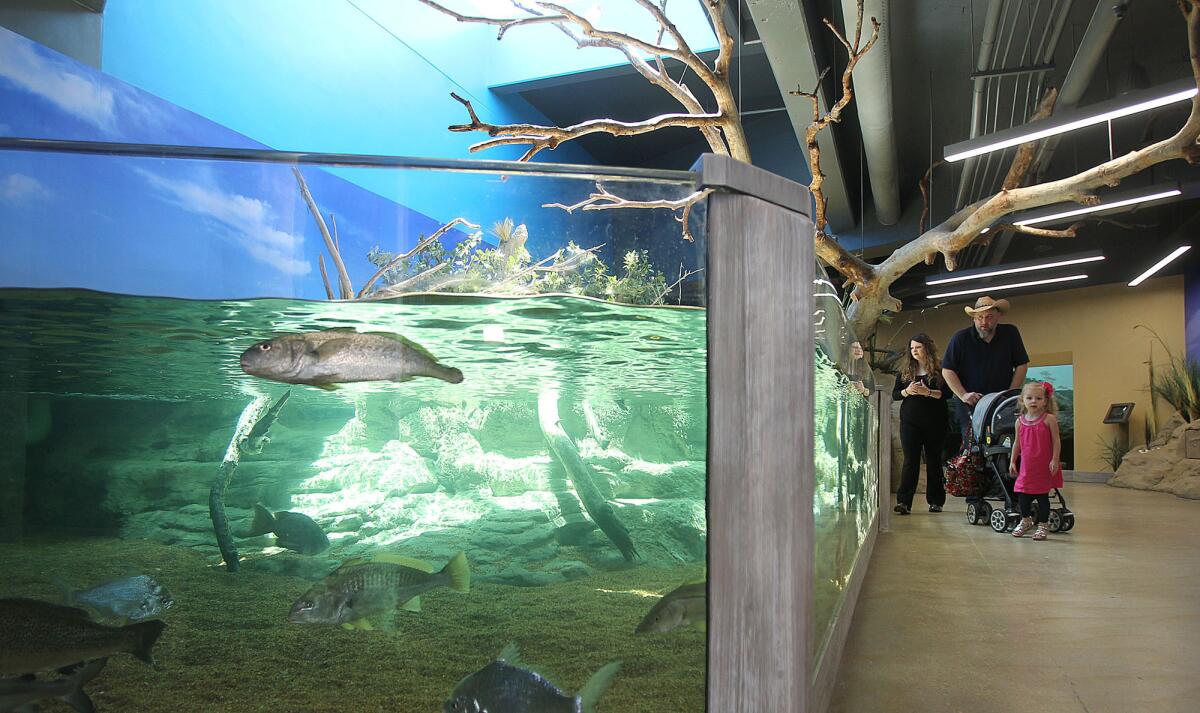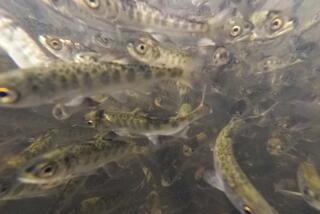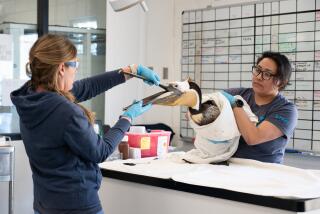Texas fish fans in mourning after bizarre aquarium die-off

Fans of the Texas State Aquarium were in mourning Thursday after a bizarre die-off killed almost all the fish in its two biggest indoor tanks this week.
The aquarium’s Facebook page has turned into an impromptu memorial with people posting old photos of themselves or their children with the aquarium fish at the Corpus Christi facility.
“It was a shock [to] see what had happened to those beautiful sea animals ... we were there last weekend and we had a beautiful experience,” one woman wrote, posting a selfie with two sharks in the background. “That main tank was our favorite.”
Another user wrote, “I brought two of my kids this morning and we still had a great time. It was hard to walk past the empty tanks and I can’t imagine how hard it is for y’all.”
The die-off, described as “rare” and a “fluke” by aquarium and industry officials, happened Tuesday when aquarium employees put a new medication into the tanks, according to the aquarium.
As many as 100 fish were killed in the four affected tanks, the largest of which holds 125,000 gallons, aquarium spokesman Richard E. Glover Jr. said. Staffers worked through the night to save as many animals as possible and try to figure out what went wrong. Water samples have been sent to labs for testing, he said.
In a statement Thursday, aquarium officials thanked supporters “for the tremendous outpouring of love and support we have received during this challenging time” and promised to provide more details as information becomes available.
“Our facility is open and our hearts are full of appreciation for the immense amount of kindness and concern we have received from all of you,” said the statement, which was also posted to Facebook and Instagram.
Aquarium officials did not immediately respond to a message seeking further information Thursday.
Such an incident “is extremely rare,” said Rob Vernon, a spokesman for the Assn. of Zoos and Aquariums.
The new medication had been introduced into the water in an effort to control a parasite that was resistant to other treatments, Glover, the aquarium spokesman, said Wednesday.
Before introducing the chemical into the tanks, staffers tested it on a smaller exhibit and found no adverse reaction, he said.
That largest affected tank held an exhibit called the Islands of Steel, featuring nurse sharks, green moray eels, spadefish, amberjack, tarpon, grouper and a sand tiger shark, according to the aquarium’s website.
The aquarium was trying to kill the trematoda parasite, Glover said.
“Trematoda is a class within the phylum Platyhelminthes,” he said. “It includes two groups of parasitic flatworms, known as flukes. They are internal parasites.”
Glover did not specify what chemical was used to try to kill the parasite, but the aquarium said in a statement that it “is commonly used by many other aquariums in treating similar issues.”
“Nothing like this has ever happened before,” Glover said. “It appears to be a truly sad fluke.”
The Texas State Aquarium has received condolences from other aquariums, including one of the largest in the world, the Shedd Aquarium in Chicago, which wrote on the Texas aquarium’s page: “Everyone here at Shedd is so saddened to hear about the loss of your fishes. Our thoughts are with you!”
An official at the Aquarium of the Pacific in Long Beach said Wednesday he sympathizes with the Texas aquarium staffers.
“We manage health problems like parasite infections in fish and also take precautionary steps to minimize the risk to the fish, but complications can still occur,” Perry Hampton, Aquarium of the Pacific vice president of animal husbandry, told the Los Angeles Times in an email.
“Fortunately,” he said, “we have not experienced such a significant adverse reaction to date and empathize with the staff over the loss of their animals.”
Follow @MattDPearce for national news
More to Read
Start your day right
Sign up for Essential California for news, features and recommendations from the L.A. Times and beyond in your inbox six days a week.
You may occasionally receive promotional content from the Los Angeles Times.








